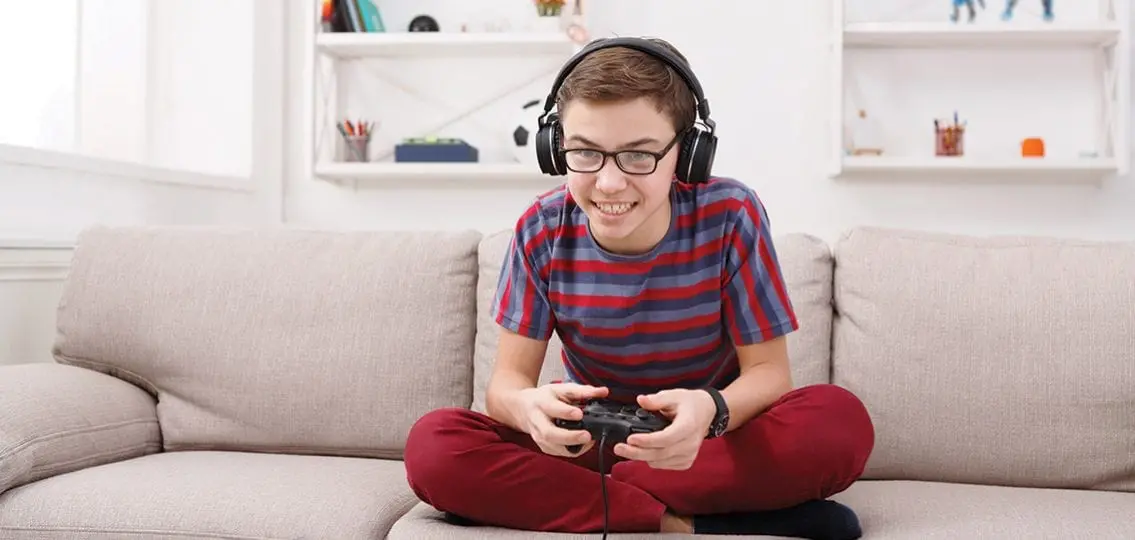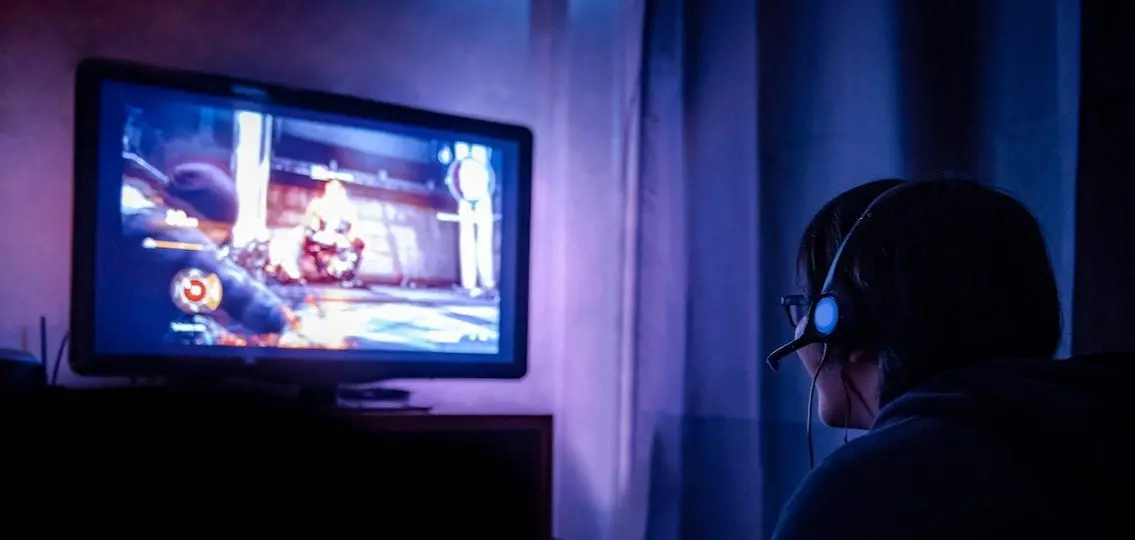If you came downstairs this morning to discover that your kid stayed up all night playing Fortnite, you’re not alone. Fortnite is the latest in a long line of video games that kids find so engrossing they ignore everything, including sleep, just to keep playing. But how can you tell when an interest in video games shifts from a fun hobby into a more serious obsession?

The American Psychiatric Association (APA) hasn’t yet made a formal diagnosis for gaming disorders. Instead, they use the term “internet gaming disorder” to describe obsessive gaming. The APA defines gaming disorders as behavior that is responsible for “significant impairment or distress” in several areas of a person’s life.
A teen with a gaming disorder exhibits the following symptoms:
- Preoccupation with gaming
- Withdrawal symptoms like sadness, anxiety, and irritability when gaming is taken away
- The need to spend more and more time gaming to satisfy the urge to play
- Inability to reduce playing time or unsuccessful attempts to quit gaming
- Giving up previously enjoyed activities for gaming
- Continuing to game despite problems
- Deceiving family members or others about the amount of time spent on gaming
- Using gaming to relieve negative moods, such as guilt or hopelessness
- Risk having jeopardized or lost a job or relationship due to gaming
Individuals exhibiting five or more the above symptoms in a year would meet the conditions for a gaming disorder diagnosis, under the APA’s proposed criteria.
According to a Pew Research Center survey, 83 percent of teen girls and 97 percent of teen boys in America report playing video games on some type of device, whether computer, game console, tablet, or smartphone. We’re all struggling to distinguish normal gaming behaviors from unhealthy habits.
Mike Langlois, a psychotherapist specializing in gaming, social media, and psychology, helps bridge the gap between gaming kids and their parents. “If you’re worried that your child is preoccupied with gaming to the exclusion of other fun activities, talk with them about it,” says Langlois. “True obsessional behavior is never pleasant for children. If they don’t feel a sense of freedom and playfulness, it may be time to have a professional therapist screen them for obsession.”
If you’re worried about the amount of time your kid is playing video games, Langlois suggests pausing before reacting. “No one ever died of losing a night or two of sleep,” says Langlois. “If kids are expected to do the same tasks they usually do when exhausted, it may help them learn to self-regulate a bit.”
It’s important not to overreact. “Remind them the next night of how they felt that day, and suggest they get more rest,” Langlois recommends. “Don’t become overly preoccupied with your child’s sleep or it will become a source of control and conflict between the two of you, and that can aggravate the situation.”
6 Tips to Help Prevent Gaming Disorder:
1. Set guidelines about how to earn free time.
Langlois suggests framing free time as a reward for “unlocking achievements,” such as chores, a concept gaming kids understand well.
2. Be clear that school work completion is one achievement and grades are another.
This prevents kids from rushing through homework just to get to game time, says Langlois.
3. Allow your child to choose how to spend free time.
If children are free to choose their recreational activity of choice, don’t try to push them to do something else if they choose gaming.
4. Designate family tech-free times.
Remember that you need to model appropriate electronics or screened device behavior for your kids.
5. Use qualitative, rather than quantitative, guidelines to limit time.
Base your limits for gaming on the game your child is playing rather than on the clock. For instance, instead of saying, “You have ten more minutes to play your game,” tell your child they have to stop playing after another round, one more quest, or another build.
6. Communicate why you’re limiting gaming time.
If you feel that your child is gaming too much, explain that to them and have an open dialogue about your concerns.

If you’ve followed all of the advice and tips about setting gaming limits and still find yourself in conflict with your teen about their gaming, consider working with a therapist. Langlois suggests finding a play therapist with gaming experience so that they can work with your child to practice how to stop gameplay in a therapy setting.




